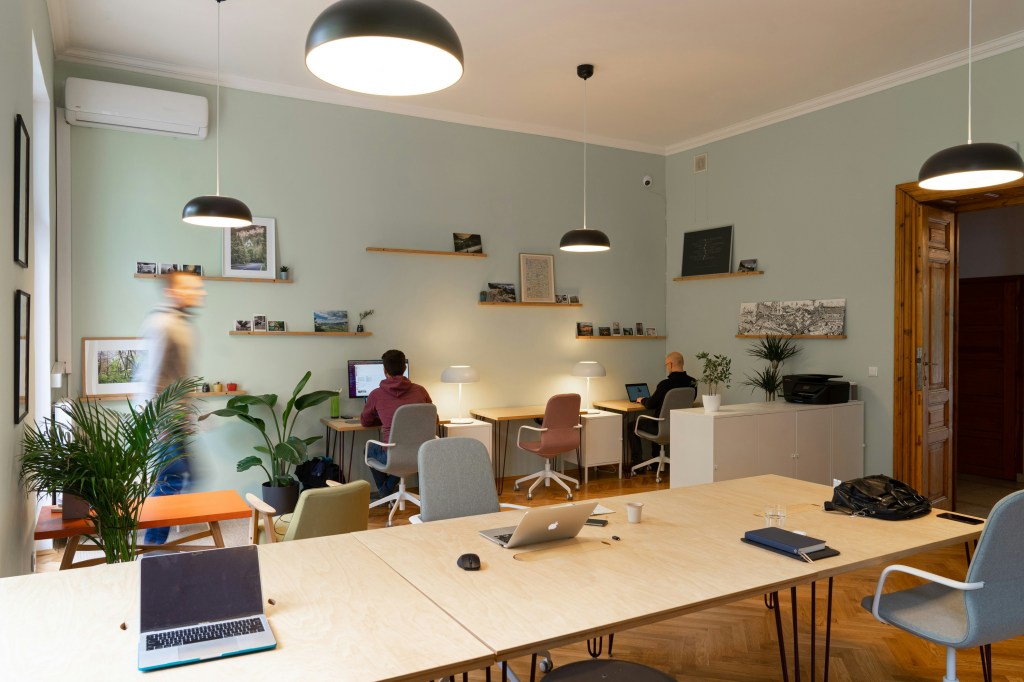Redefining Productivity: How Coworking Spaces are Changing Work Habits
In recent years, coworking spaces have evolved from trendy alternatives to traditional office environments into essential hubs that foster productivity, creativity and collaboration. As businesses and freelancers continue to embrace flexible working arrangements, coworking spaces are redefining what it means to be productive. This shift is transforming work habits, offering individuals and organizations new ways to thrive in today’s dynamic, digital-first world.
The Rise of Coworking Spaces
The coworking model emerged in the early 2000s, when independent workers, freelancers and small startups sought alternatives to traditional office setups. By providing a shared space with flexible leases, coworking spaces made it easier for workers to find a professional environment without the long-term commitment or cost of renting a private office. Over the past decade, the model has grown exponentially, with thousands of coworking spaces now scattered worldwide, catering to everyone from solo freelancers to corporate teams.

This rapid rise was fueled not only by economic factors but by changing work expectations. Many professionals now prioritize work-life balance, autonomy and the freedom to work from anywhere. Coworking spaces allow workers to choose where, when and how they work, fostering a sense of independence that is often lacking in traditional office environments. In turn, these spaces have encouraged a more fluid definition of productivity that values flexibility and personal well-being.
A New Approach to Productivity
Coworking spaces are transforming work habits by emphasizing productivity as a holistic concept, rather than solely focusing on output. Traditional offices often prioritize hours worked over the quality or creativity of that work. Coworking spaces, however, provide an environment that values results, engagement and personal satisfaction.
One of the key productivity benefits of coworking spaces is the diversity of environments they offer. Workers can choose spaces that suit their specific needs on any given day, whether they need quiet zones for deep focus, collaborative areas for teamwork or social spaces for networking. This adaptability encourages workers to be more mindful of their needs, fostering habits that lead to better time management and more efficient workflows.

Moreover, the sense of community in coworking spaces can significantly enhance productivity. Unlike isolated home offices, coworking spaces bring together professionals from diverse industries and backgrounds, which can spark creativity and provide valuable networking opportunities. Workers in these spaces often report increased motivation, as they are surrounded by like-minded individuals who share a commitment to personal and professional growth.
Mental Health and Flexibility
Another profound impact of coworking spaces on productivity is their positive effect on mental health. A well-designed coworking space includes elements like natural lighting, ergonomic furniture and inviting interiors that promote well-being. Studies show that people working in such environments experience lower stress levels and higher job satisfaction, both of which are essential for sustained productivity.

Furthermore, coworking spaces support the flexibility that modern workers increasingly demand. They enable employees to break away from rigid schedules and environments, creating space for work that aligns with their natural rhythms. For instance, night owls can choose spaces that operate around the clock and remote workers who miss in-person interactions can attend social events or group work sessions in shared spaces. This flexibility helps prevent burnout and enables workers to sustain high productivity levels over the long term.
Conclusion
Coworking spaces are much more than shared office spaces. They are hubs of innovation that are redefining productivity in the modern workforce. By fostering flexibility, promoting mental well-being and encouraging a more dynamic approach to work habits, coworking spaces are proving to be instrumental in shaping a new, balanced view of productivity. As more companies and individuals embrace this model, coworking spaces will continue to change how we work, encouraging work habits that are as sustainable as they are effective. Click below to find out how Yardi Kube coworking software can help you best manage your coworking space as they become essential parts in our work dynamic.
Sanziana Bona
Sanziana Bona is a content marketing writer specializing in commercial real estate technology for Yardi Kube, an all-in-one coworking and flexible workspace management platform, and Yardi Corom, a cloud-based solution built for commercial tenants and corporate occupiers. With a strong focus on the evolving needs of occupiers and workspace operators, she develops in-depth, research-driven content that translates complex industry topics into clear, actionable insights. Her expertise spans occupancy analytics, portfolio optimization, FASB and IFRS lease accounting compliance, coworking operations and the growth of flexible and hybrid work environments. Her work has been featured in CNBC, CBS News, NBC New York, The Press Democrat, Wolf Street and The Registry San Francisco, among others. You can connect with Sanziana via email.
